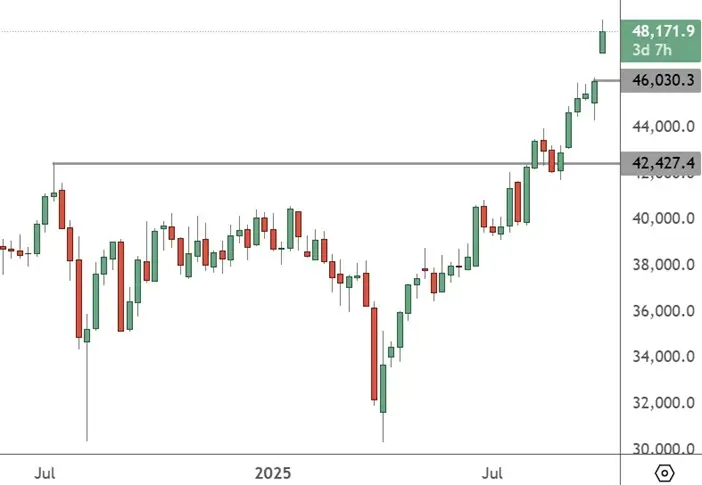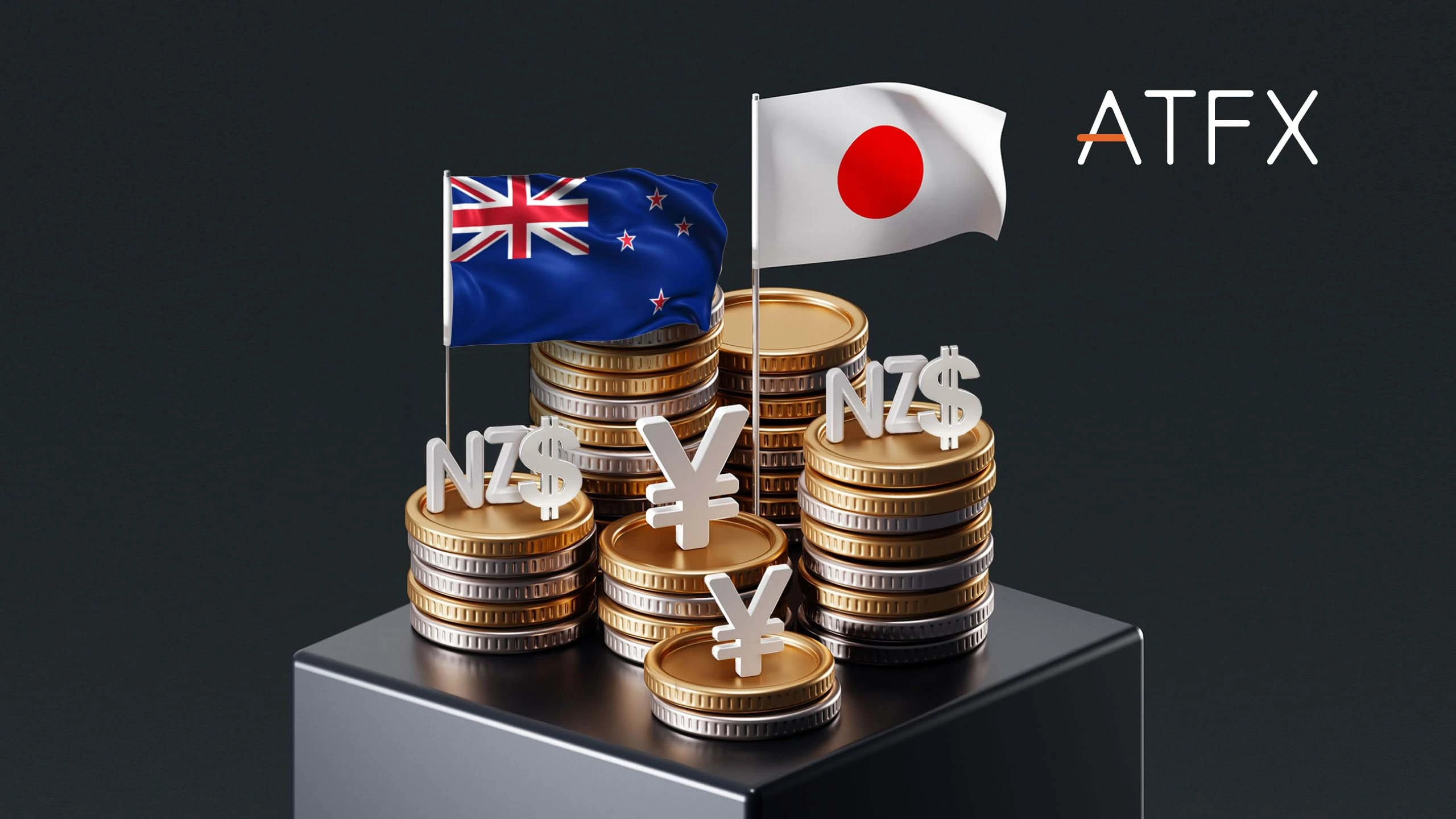Sanae Takaichi, the newly elected Liberal Democratic Party president, has appointed former Prime Minister Taro Aso as her party’s vice president, a move analysts see as a potential obstacle to Japan’s massive spending.

JPN 225 – Daily Chart
The JPN 225 vaulted higher at Monday’s open and is now trading above 48,000. The first key level to hold is the gap at 46,000, which now protects the 42,427 highs.
Sanae Takaichi, who is on course to become Japan’s next prime minister, chose former premier Taro Aso on Tuesday as vice president of her ruling party. Some analysts are seeing his appointment as a block to big fiscal spending.
Takaichi also chose former finance minister Shunichi Suzuki as secretary-general of the Liberal Democratic Party (LDP). Japanese share prices surged again with a slump in the yen, as markets were expecting a big fiscal stimulus package, alongside slow progress in rate increases from the Bank of Japan.
“During the leadership race, the Aso faction backed Takaichi, so her administration may remain strongly influenced by him,” said Takahide Kiuchi, economist at Nomura Research.
“Aso’s influence could moderate aggressive fiscal or overly dovish monetary impulses,” he said, with Suzuki also seen as committed to fiscal discipline.
Aso was the country’s prime minister in 2008 when the collapse of Lehman Brothers shook the global economy. He did serve under former Prime Minister Shinzo Abe during the “Abenomics” era, but he is expected to add balance to the economic plans.
The yield on 20-year Japanese government bonds reached a fresh 26-year high, and the benchmark 10-year yield was at a 17-year high on Tuesday. Markets are worried about the idea that Takaichi’s policies may worsen the country’s finances.
Domestic media reported that Takaichi is in talks with the Democratic Party for the People over a possible alliance, which has proposed income tax reforms for working households.
“If Takaichi were to choose the Democratic Party, the size of spending could rise depending on what its leader will demand in exchange for forming an alliance,” said Naomi Muguruma, bond strategist at Mitsubishi UFJ Morgan Stanley Securities.
“There’s no guarantee Aso would serve as a counter-force against big spending,” she said. “Given so much uncertainty, there won’t be many investors willing to buy JGBs”.
That could be a problem after recent wobbles in the bond market over the size of the country’s debt.


